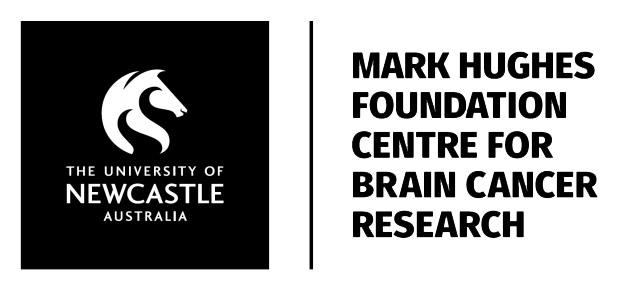
The Mark Hughes Foundation Centre for Brain Cancer Research is a multi-disciplinary, collaborative research centre which brings together scientists and clinicians, consumers and patient care professionals and builds on the University of Newcastle’s established and dynamic cancer research ecosystem and world-class technology, spaces and infrastructure.
Through collaboration and partnership with our community and like-minded national and international organisations, the Centre will drive world-leading research programs to improve the lives of people with brain cancer today and increase survival rates in the future.
In 2021, it was estimated that 2,000 Australians would be diagnosed with brain cancer – of them, 1,700 would succumb within 5 years. Survival rates for patients with brain cancer have not improved in 30 years, highlighting the importance and potential of collaborative research aimed at addressing these unacceptable outcomes. We are taking action and bringing together the best experts in the field to advance brain cancer research to achieve the greatest impact for brain tumour patients.
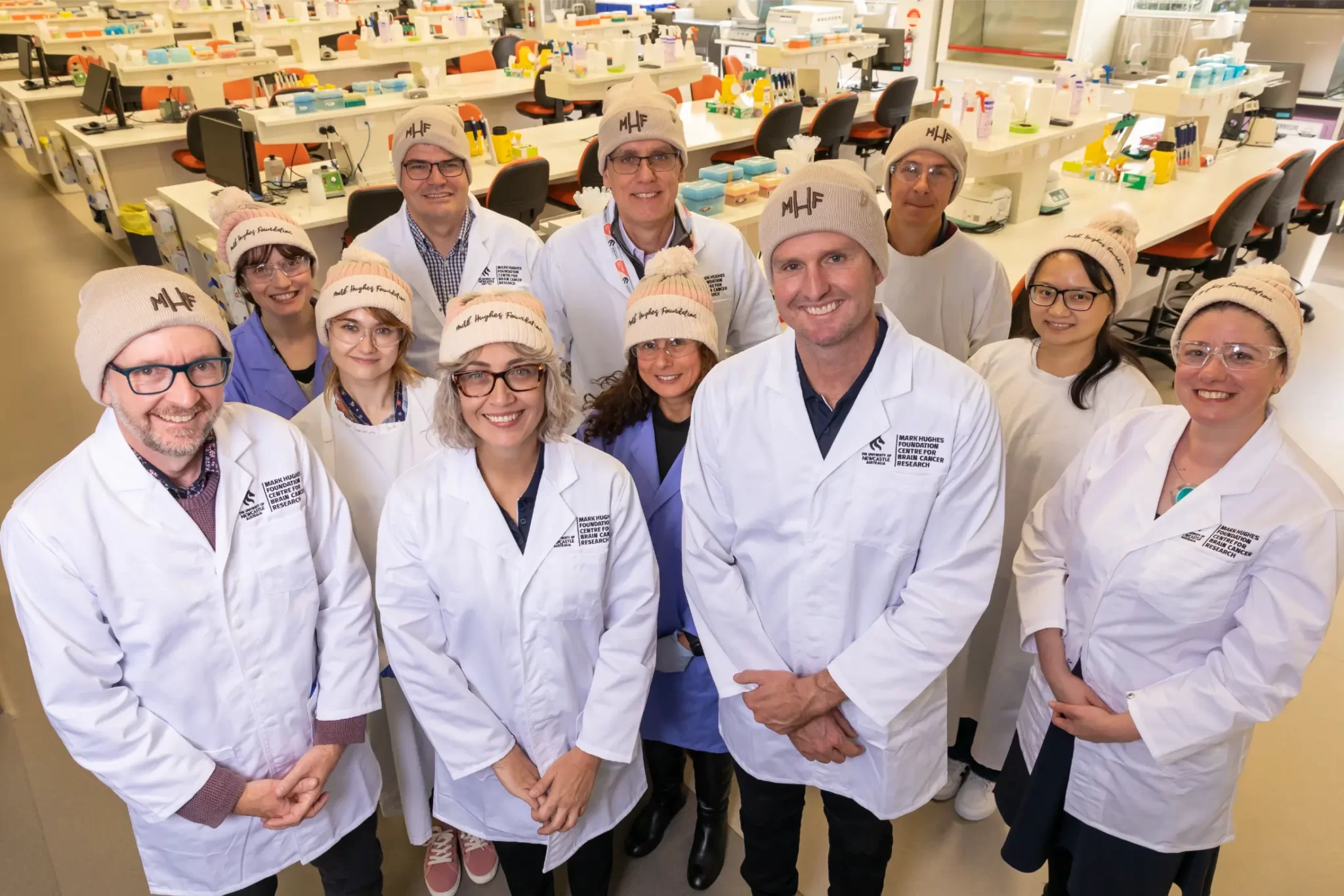
Mike brings to the Centre 25 years of clinical oncology and cancer research leadership experience. A dual-trained Medical and Radiation Oncologist, he has particular interest in brain tumours and the development of new imaging and treatment techniques.
Mike completed his undergraduate degree in Medicine and Surgery at the University of Otago and has worked clinically in New Zealand, Australia, the UK and the US and spent research time in Germany (Universität Tübingen). He has a PhD in the development and clinical translation of theranostics – a treatment using diagnostic imaging to identify if target receptors are present on cancer cells, followed by precision radiation treatment that target these receptors.
Funded by the Mark Hughes Foundation, Mike was named as the inaugural recipient of the HMRI Mid-Career Research Fellowship dedicated to brain cancer. He is the principal investigator in a number of international cancer and theranostics trials and has research collaborations with investigators in Canada, the UK and Germany. Mike is also radiation oncologist at GenesisCare.
Professor Mike Fay brings to the Centre 25 years of clinical oncology and cancer research leadership experience. A dual-trained Medical and Radiation Oncologist, he has particular interest in brain tumours and the development of new imaging and treatment techniques. Mike completed his undergraduate degree in Medicine and Surgery at the University of Otago and has worked clinically in New Zealand, Australia, the UK and the US and spent research time in Germany (Universität Tübingen). He has a PhD in the development and clinical translation of theranostics - a treatment using diagnostic imaging to identify if target receptors are present on cancer cells, followed by precision radiation treatment that target these receptors. Funded by the Mark Hughes Foundation, Mike was named as the inaugural recipient of the HMRI Mid-Career Research Fellowship dedicated to brain cancer. He is the principal investigator in a number of international cancer and theranostics trials and has research collaborations with investigators in Canada, the UK and Germany. Mike is also a radiation oncologist at GenesisCare.
Associate Professor Ramadan is the Director of Research and Manager of the Imaging Centre and is a renowned leader in the field of magnetic resonance imaging and spectroscopy. He is also the leader of imaging stream at the UoN Mark Hughes Brain Cancer Centre, and an active Section Editor at the Multiple Sclerosis and Related Disorders (IF 4.8). As the co-director of the first regional National Imaging Facility (NIF) node, A Prof Ramadan develops new initiatives and co-develops strategy at the IC and is a national leader in the application of clinical and advanced spectroscopic in vivo techniques in many pathologies including glioblastoma, breast and prostate cancers, intra-uterine restricted growth placenta and foetal brain. He leads research in the field of multiple sclerosis (MS) where he pioneered the implementation of novel MRI methods in this debilitating pathology and established novel neuro-metabolic signatures for disease modifying therapies. He also evaluated novel MR metrics for a newly developed nutraceutical designed to combat MS fatigue funded by Multiple Sclerosis Research Australia.
Dr Richard Lobb is a translational cancer biologist at the Australian Institute for Bioengineering and Nanotechnology (AIBN), and stream leader in blood-based biomarkers within the centre. Dr Lobb has a strong background in extracellular vesicle (EV) biology, hypoxia research, cancer metastasis and cancer immunology. His research program at the AIBN develops novel technologies to profile circulating EVs in the blood to determine the composition of the tumour microenvironment and predict disease progression. As the blood-based biomarker stream leader, Dr Lobb’s cross-disciplinary expertise and in-depth knowledge in liquid biopsies will contribute to the aim of translating findings to clinical applications to improve therapeutic monitoring in patients.
Associate Professor Paul Tooney is a cell biologist with a keen interest in understanding the cellular and molecular mechanisms of diseases, so that better diagnoses and treatment strategies can be developed. He is an Associate Professor at the University of Newcastle, Australia. Paul’s PhD (1995; at the University of Newcastle, Australia) and post-doctoral training (1995-1998 University of Wisconsin, USA) was in cancer biology and the extracellular matrix. Paul then returned to Australia and took an opportunity to focus on the neurobiology of schizophrenia as a Research Officer/Senior Research Officer (1998-2004) with the Schizophrenia Research Institute before moving into his academic position with the University of Newcastle. Paul’s research from 1998 to 2017 focused on the neurobiology and genetics underpinning schizophrenia. Paul played a major role in the establishment of the Australian Schizophrenia Research Bank (ASRB), which collected clinical and cognitive data as well as blood samples for genetic analysis and structural brain scans from participants with schizophrenia and controls from all over Australia. The ASRB has contributed to over 100 research projects and well over 100 research papers.
Hubert Hondermarck is a Professor of biochemistry specialised in understanding how nerve cells communicate with cancer cells. Following a PhD in developmental neurobiochemistry at the University of Lille in France, a post-doc in biomedical proteomics at the University of California in Irvine, he worked in several European laboratories before joining the University of Newcastle. Professor Hondermarck is internationally renowned for his work in proteomics and neuroscience, focusing on the role of the nervous system in cancer. Brain cancer cells are surrounded by neuronal cells that are critically important for the initiation and progression of brain tumours. Professor Hondermarck investigates what goes wrong with neurons and how they contribute to cancer progression and the associated pain. His multidisciplinary research team aims at defining the impact of neuronal cells in brain cancer and translate this basic knowledge in the development of new biomarkers and therapeutic targets for improving early diagnosis and treatment options.
Professor Matt Dun is a translational biomedical scientist that has been supported continuously by State and Federal Government research fellowships since the completion of his doctoral studies (2012). Currently, he is a National Health and Medical Research Council (NHMRC) Investigator, Emerging Leader, also supported over recent times by a ChadTough Defeat DIPG New Investigator Grant. Professor Dun leads the Cancer Signalling Research Group at the University of Newcastle, Hunter Medical Research Institute, which focusses on childhood leukaemia and childhood/adolescent brain cancer research. Use sophisticated pharmaco-phospho-proteogenomic techniques his team characterises the cellular signalling pathways that are dysregulated by the genetic individualities of a patient’s cancer. This profiling strategy attempts to identify novel treatment targets and drug combinations to improve survival.
Brain cancer is the leading cause of cancer death in children, and adults aged under 40 in Australia, yet alarmingly very little is known about brain cancer, its causes or how it is treated.
That’s why we need your help. Every dollar helps in the fight against brain cancer. Your donation will go towards vital research to improve patient treatments and, hopefully, find a cure one day.
All donations of $2 or more are tax deductible.
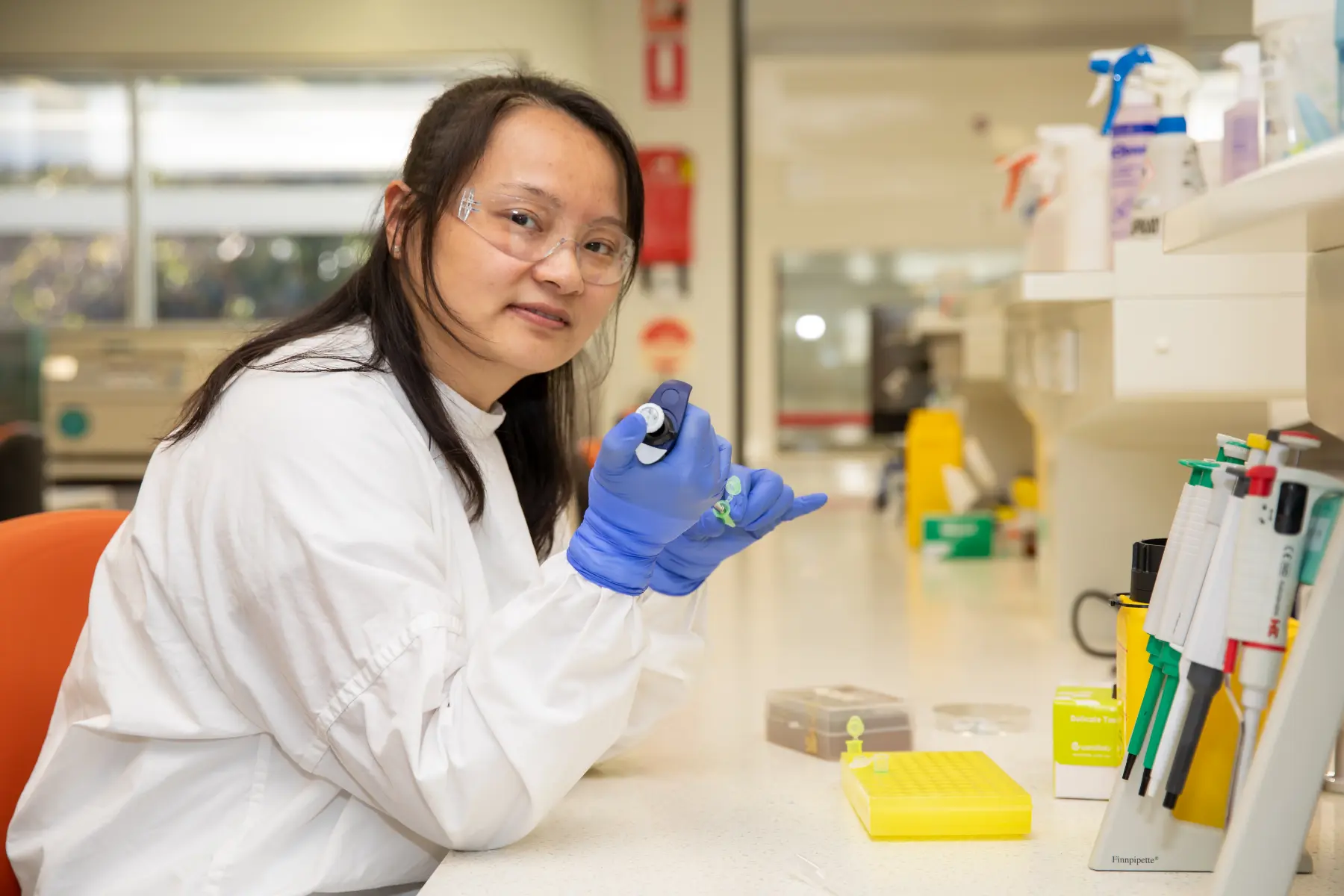
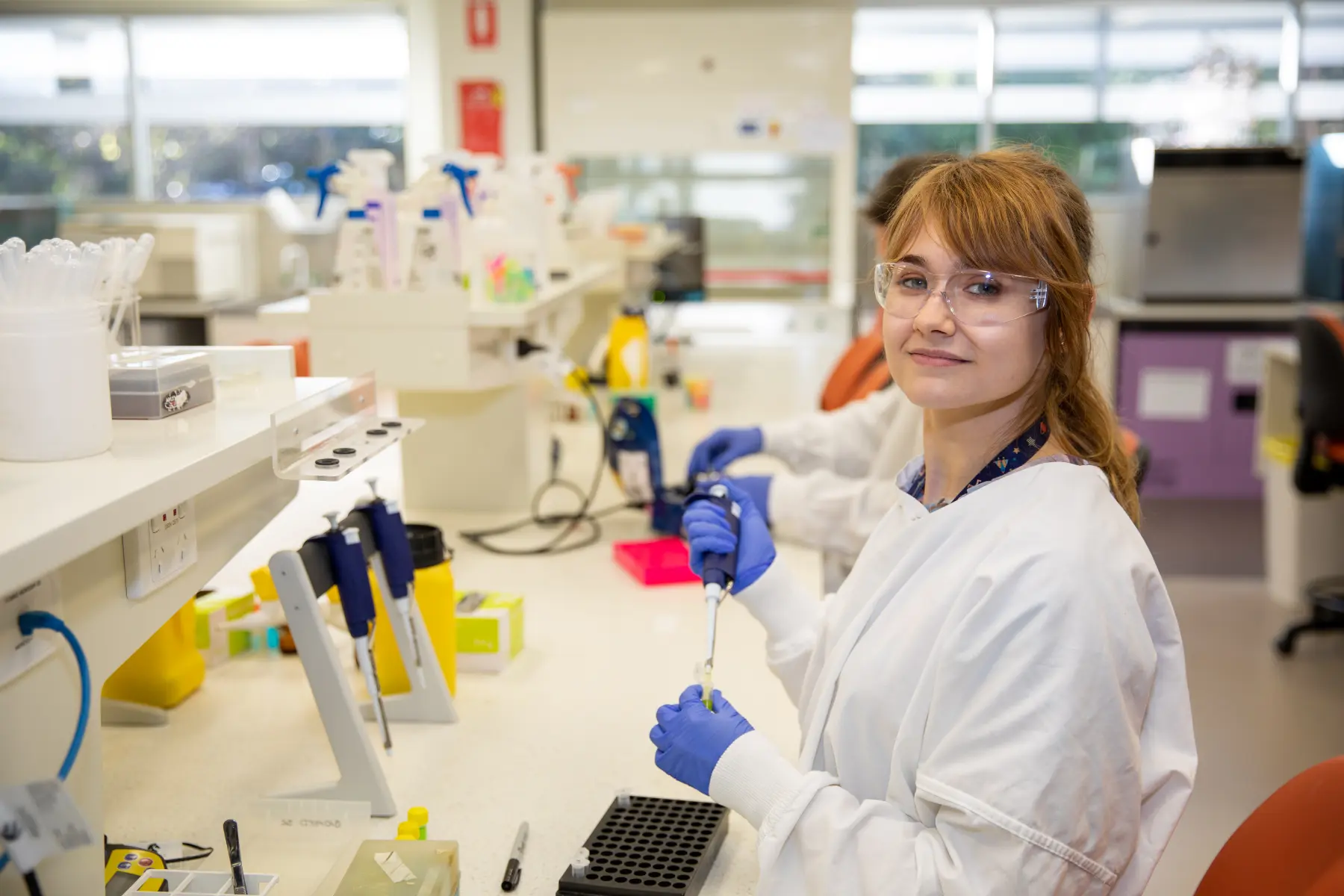
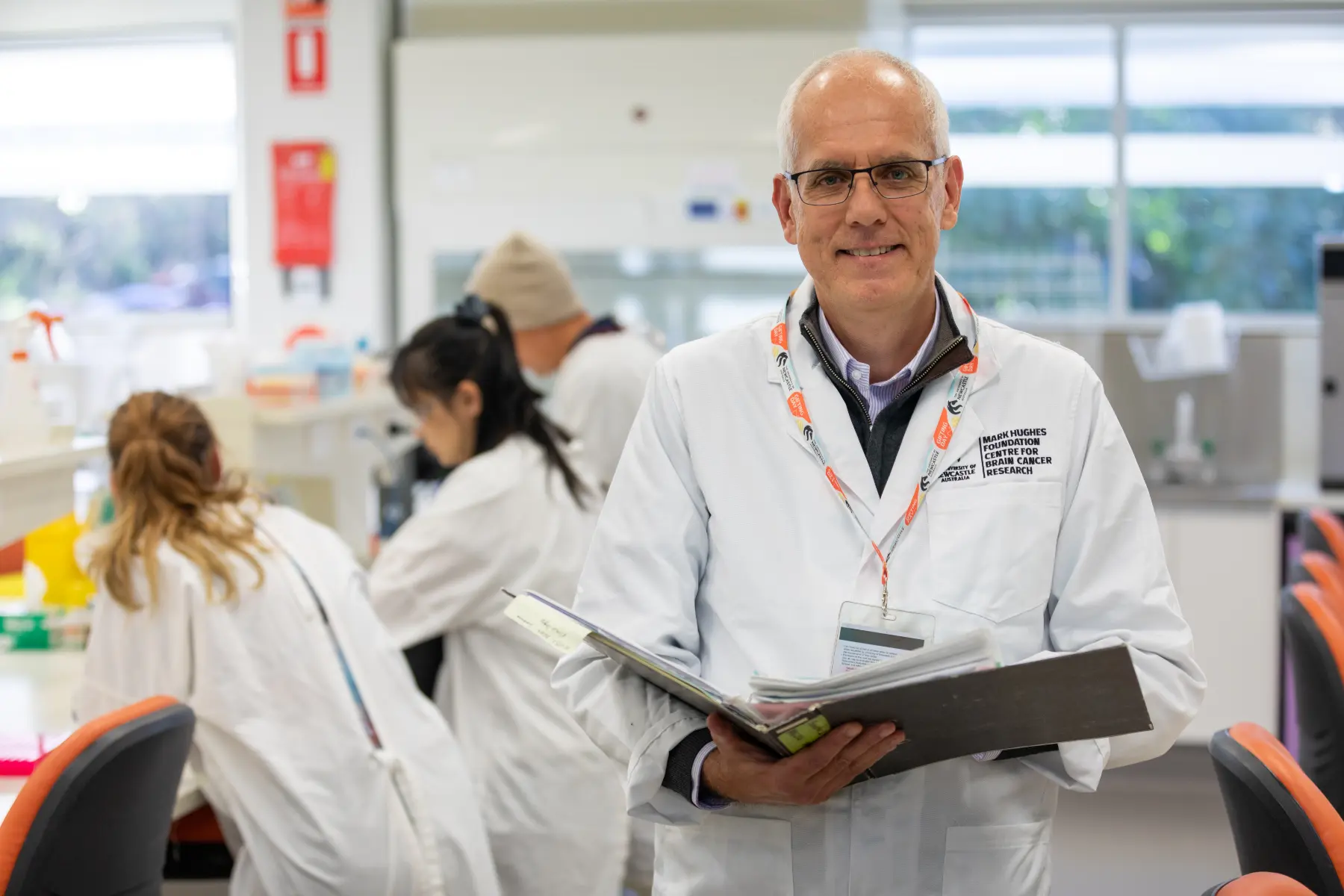
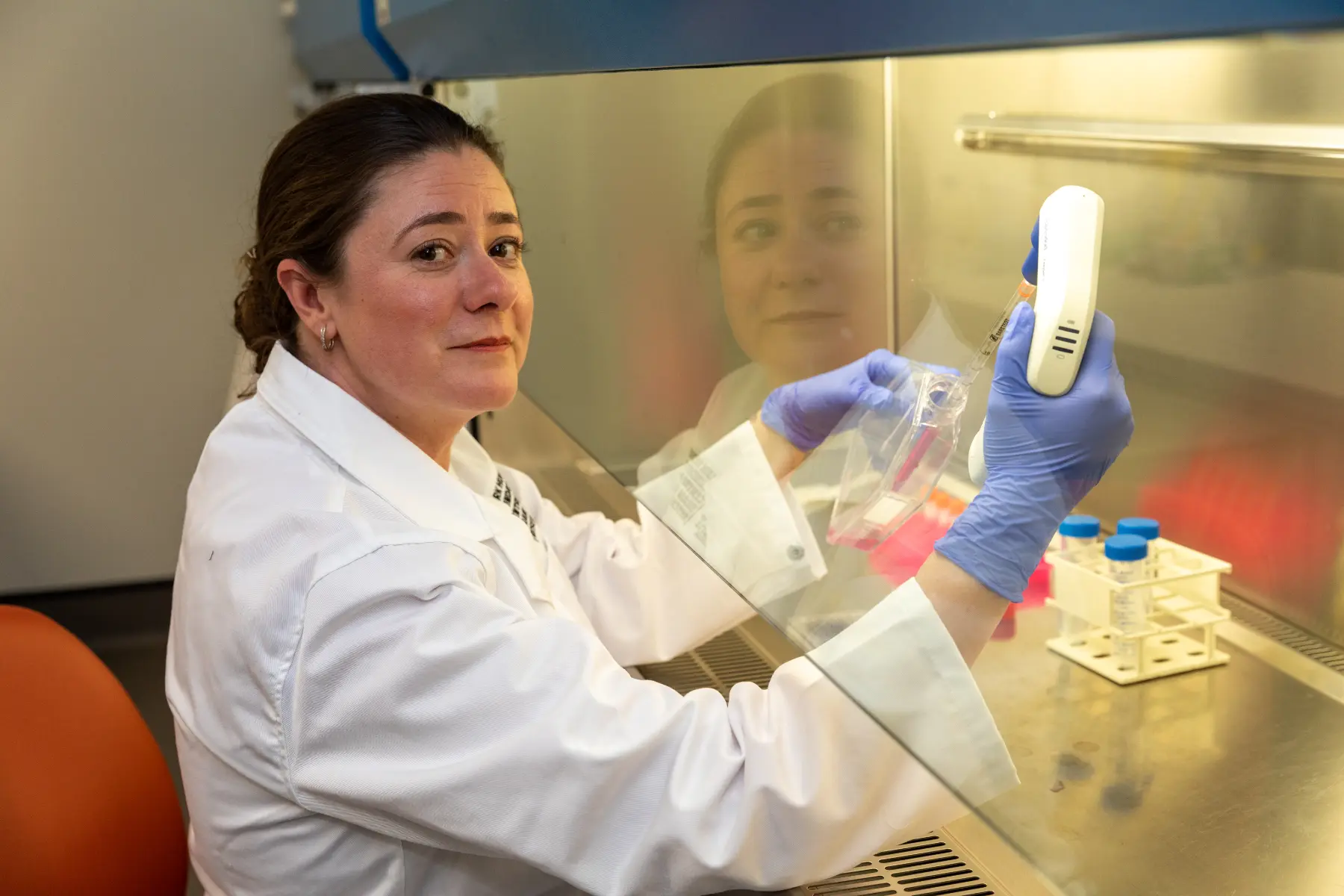
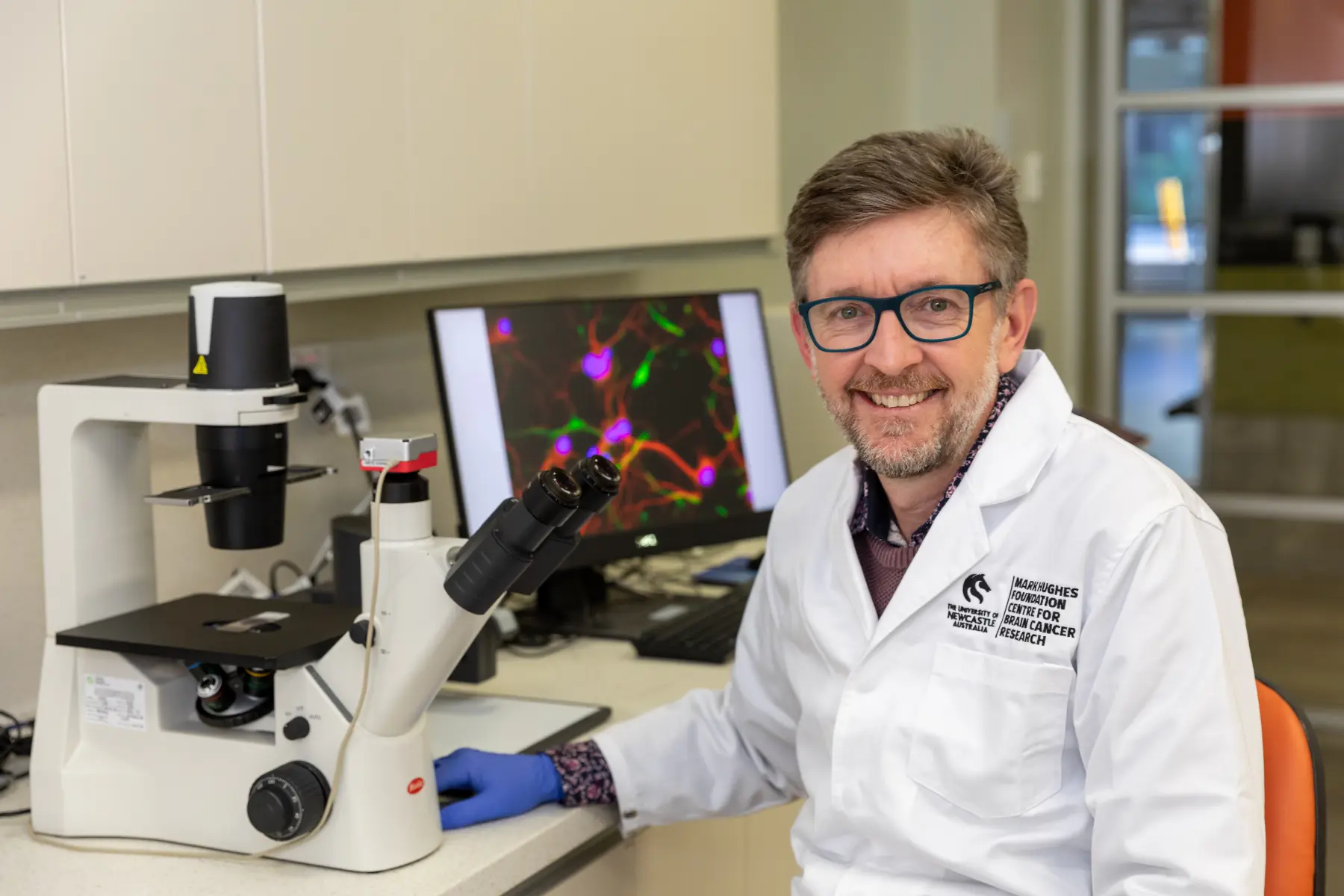
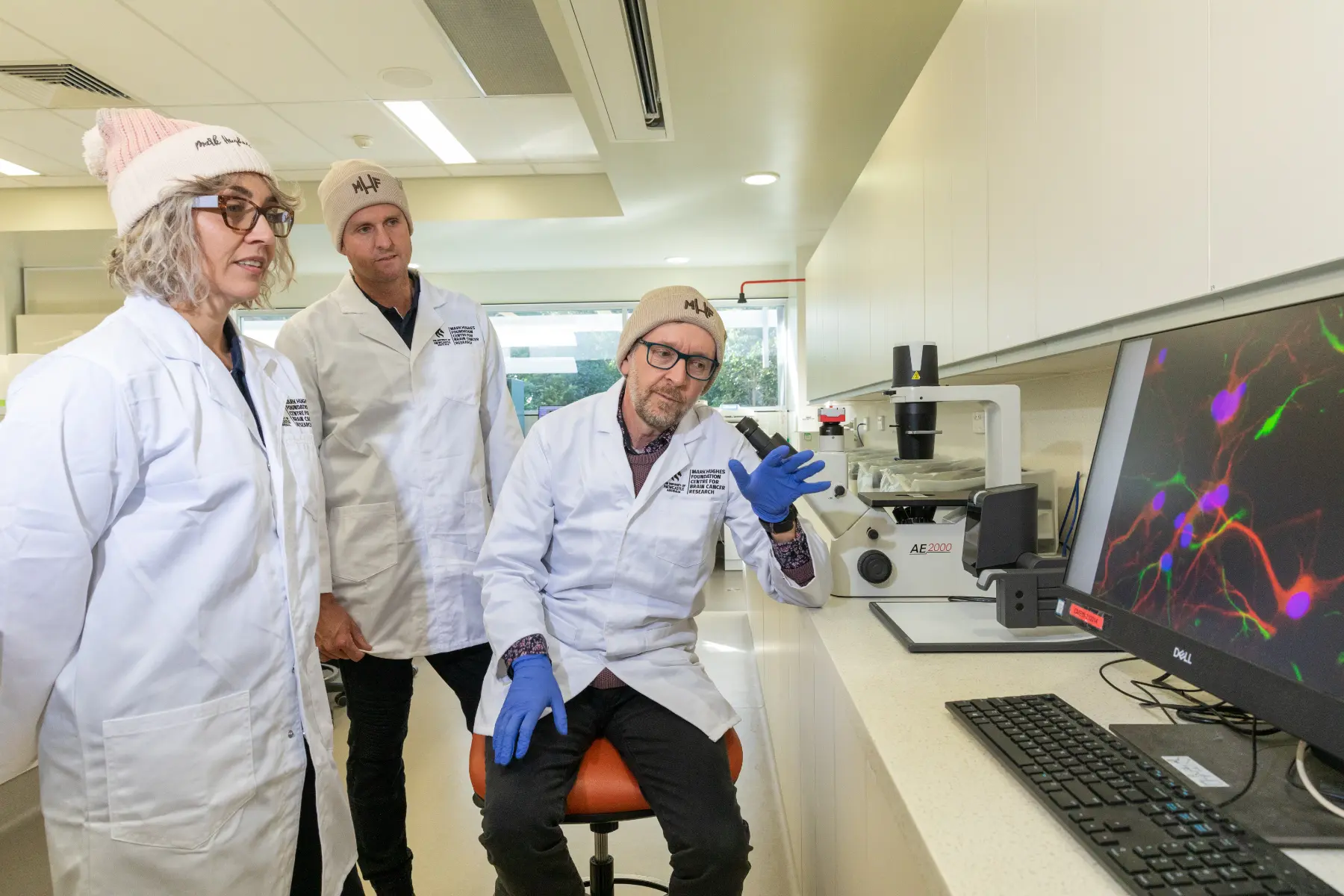
Brain cancer is the leading cause of cancer death in children, and adults aged under 40 in Australia, yet alarmingly very little is known about brain cancer, its causes or how it is treated.
That’s why we need your help. Every dollar helps in the fight against brain cancer. Your donation will go towards vital research to improve patient treatments and, hopefully, find a cure one day.
All donations of $2 or more are tax deductible.